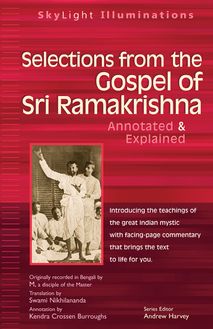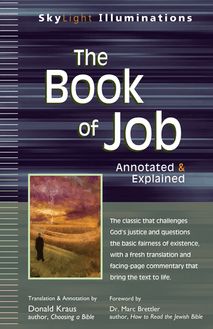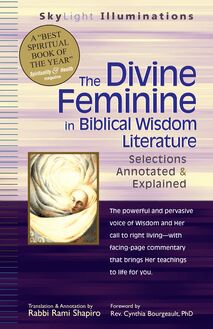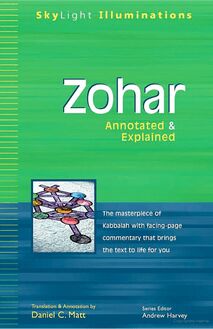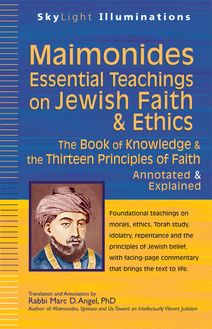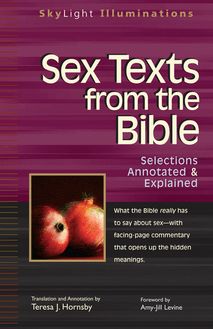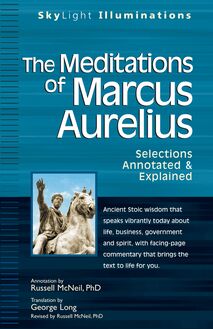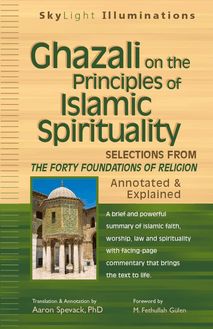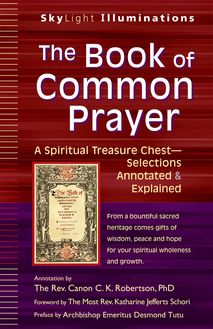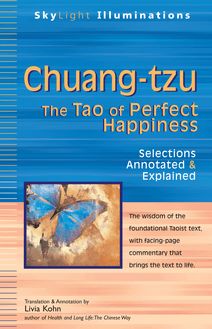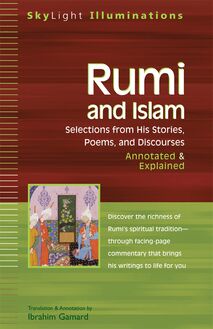Chuang-tzu , livre ebook
114
pages
English
Ebooks
2011
Vous pourrez modifier la taille du texte de cet ouvrage
Obtenez un accès à la bibliothèque pour le consulter en ligne En savoir plus
Découvre YouScribe en t'inscrivant gratuitement
Découvre YouScribe en t'inscrivant gratuitement
114
pages
English
Ebooks
2011
Vous pourrez modifier la taille du texte de cet ouvrage
Obtenez un accès à la bibliothèque pour le consulter en ligne En savoir plus
Publié par
Date de parution
01 février 2011
Nombre de lectures
2
EAN13
9781594733284
Langue
English
The timeless wisdom of this classic Taoist text can become a companion on your own spiritual journey.
The Chuang-tzu is the second major text of the Taoist tradition. It was compiled in the third century BCE and follows the lead of the best-known and oldest of all Taoist texts, the Tao-te-ching (Book of the Tao and Its Potency). Representing the philosophy of its main author, Chuang Chou, along with several other early Taoist strands, the text has inspired spiritual seekers for over two thousand years.
Using parable, anecdote, allegory and paradox, the Chuang-tzu presents the central message of what was to become the Taoist school: a reverence for the Tao—the "Way" of the natural world—and the belief that you are not truly virtuous until you are free from the burden of circumstance, personal attachments, tradition and the desire to reform the world. In this special SkyLight Illuminations edition, leading Taoist scholar Livia Kohn, PhD, provides a fresh, modern translation of key selections from this timeless text to open up classic Taoist beliefs and practices. She provides insightful, accessible commentary that highlights the Chuang-tzu's call to reject artificially imposed boundaries and distinctions, and illustrates how you can live a more balanced, authentic and joyful life—at ease in perfect happiness—by following Taoist principles.
Introduction vii
Universal Patterns
1. Perfect Happiness 3
2. The Universe 17
3. Life and Death 33
4. Cosmos and Destiny 47
Body and Mind
5. The Self 61
6. Dreams 75
7. The Human Mind 87
Self-Transformation
8. Oblivion 103
9. Realizing Tao 119
10. The Perfected 137
The New Life
11. Uselessness 153
12. Natural Skills 167
13. In the World 179
14. When in Power 193
Suggestions for Further Reading 207
Publié par
Date de parution
01 février 2011
Nombre de lectures
2
EAN13
9781594733284
Langue
English
Books in the SkyLight Illuminations Series
The Art of War-Spirituality for Conflict: Annotated & Explained
Bhagavad Gita: Annotated & Explained
The Book of Mormon: Selections Annotated & Explained
Celtic Christian Spirituality: Essential Writings-Annotated & Explained
Confucius, the Analects: The Path of the Sage-Selections Annotated & Explained
Dhammapada: Annotated & Explained
The Divine Feminine in Biblical Wisdom Literature: Selections Annotated & Explained
Ecclesiastes: Annotated & Explained
The End of Days: Essential Selections from Apocalyptic Texts-Annotated & Explained
Ethics of the Sages: Pirke Avot -Annotated & Explained
Ghazali on the Principles of Islamic Spirituality: Selections from Forty Foundations of Religion -Annotated & Explained
Gnostic Writings on the Soul: Annotated & Explained
The Gospel of Philip: Annotated & Explained
The Gospel of Thomas: Annotated & Explained
Hasidic Tales: Annotated & Explained
The Hebrew Prophets: Selections Annotated & Explained
The Hidden Gospel of Matthew: Annotated & Explained
The Infancy Gospels of Jesus: Apocryphal Tales from the Childhoods of Mary and Jesus-Annotated & Explained
The Lost Sayings of Jesus: Teachings from Ancient Christian, Jewish, Gnostic, and Islamic Sources-Annotated & Explained
The Meditations of Marcus Aurelius: Selections Annotated & Explained
Native American Stories of the Sacred: Annotated & Explained
Philokalia: The Eastern Christian Spiritual Texts-Annotated & Explained
The Qur an and Sayings of Prophet Muhammad: Selections Annotated & Explained
Rumi and Islam: Selections from His Stories, Poems, and Discourses-Annotated & Explained
The Sacred Writings of Paul: Selections Annotated & Explained
Saint Augustine of Hippo: Selections from Confessions and Other Essential Writings-Annotated & Explained
St. Ignatius Loyola-The Spiritual Writings: Selections Annotated & Explained
The Secret Book of John: The Gnostic Gospel-Annotated & Explained
Selections from the Gospel of Sri Ramakrishna: Annotated & Explained
Sex Texts from the Bible: Selections Annotated & Explained
Spiritual Writings on Mary: Annotated & Explained
Tanya, the Masterpiece of Hasidic Wisdom: Selections Annotated & Explained
Tao Te Ching: Annotated & Explained
The Way of a Pilgrim: The Jesus Prayer Journey-Annotated & Explained
Zohar: Annotated & Explained
Chuang-tzu: The Tao of Perfect Happiness-Selections Annotated & Explained
2011 Quality Paperback Edition, First Printing Translation, annotation, and introductory material 2011 by Livia Kohn
All rights reserved. No part of this book may be reproduced or transmitted in any form or by any means, electronic or mechanical, including photocopying, recording, or by any information storage and retrieval system, without permission in writing from the publisher.
For information regarding permission to reprint material from this book, please mail or fax your request in writing to SkyLight Paths Publishing, Permissions Department, at the address / fax number listed below, or e-mail your request to permissions@skylightpaths.com.
Library of Congress Cataloging-in-Publication Data Zhuangzi. [Nanhua jing. English. Selections] Chuang-tzu : the Tao of Perfect Happiness : selections annotated & explained / translated & annotated by Livia Kohn. - Quality paperback ed. p. cm. Includes bibliographical references. ISBN 978-1-59473-296-6 (quality pbk.) I. Kohn, Livia, 1956- II. Title. III. Title: Tao of Perfect Happiness: selections annotated & explained. BL1900.C5E5 2011 181'.114-dc22 2010046287
10 9 8 7 6 5 4 3 2 1
Manufactured in the United States of America
Cover design: Walter C. Bumford III, Stockton, Massachusetts Cover art: Painted Butterfly-Illustration in Grunge Style Freesurf #5633405 / fotolia.com
SkyLight Paths Publishing is creating a place where people of different spiritual traditions come together for challenge and inspiration, a place where we can help each other understand the mystery that lies at the heart of our existence.
SkyLight Paths sees both believers and seekers as a community that increasingly transcends traditional boundaries of religion and denomination-people wanting to learn from each other, walking together, finding the way
SkyLight Paths, Walking Together, Finding the Way and colophon are trademarks of LongHill Partners, Inc., registered in the U.S. Patent and Trademark Office.
Walking Together, Finding the Way Published by SkyLight Paths Publishing A Division of LongHill Partners, Inc. Sunset Farm Offices, Route 4, P.O. Box 237 Woodstock, VT 05091 Tel: (802) 457-4000 Fax: (802) 457-4004 www.skylightpaths.com
Contents
Introduction
Universal Patterns
1. Perfect Happiness
2. The Universe
3. Life and Death
4. Cosmos and Destiny
Body and Mind
5. The Self
6. Dreams
7. The Human Mind
Self-Transformation
8. Oblivion
9. Realizing Tao
10. The Perfected
The New Life
11. Uselessness
12. Natural Skills
13. In the World
14. When in Power
Suggestions for Further Reading
About SkyLight Paths
Copyright
Introduction
The Chuang-tzu (Zhuangzi), named after its author, is the second major text of the Taoist (Daoist) tradition. It was compiled in the third century BCE and follows in the footsteps of the best-known and oldest of all Taoist texts, the Tao-te-ching (Daode jing; Book of the Tao and Its Potency), originally, like the Chuang-tzu, known by the name of its author, Lao-tzu (Laozi), which literally means Old Master or Old Child.
Both works, rendered here in my own words, still form an active part not only of the Taoist tradition but also of Chinese culture in general. Read as classics, they are a must for every schoolchild, who can tell any number of stories from the Chuang-tzu and recite long passages from the Tao-te-ching. They are also at the core of Chinese literature, the Chuang-tzu being the first work of classical fiction with its numerous parables and fictional dialogues, the Tao-te-ching written in verse closely reminiscent of ancient poetry-as documented in the Shih-ching ( Shijing ), or Book of Songs-and thus one of the forerunners and main inspirations for Chinese poets. Both texts are also philosophical; they form the backbone of Taoism, constituting the root of an ancient and still actively pursued wisdom tradition that not only provides a bird s-eye view of how the universe functions but is also full of practical advice on how to live the best life-valid today as much as in the old days, possibly even more so.
There are many reasons to return to these ancient texts time and again, and especially to come back to the Chuang-tzu. The pure enjoyment of the stories, the vibrant humor of the tales, the fantastic aspects of reality-they all give pleasure, release, exuberance. The intricacies of ancient Chinese culture as revealed in the text, with its complex social hierarchies, demanding ways of interaction, extensive death rituals, and multiple layers of existence, from the creative power of heaven (a word indicating both the sky and the natural world at large) through gods and humans to animals and ghosts-they all spark interest, transcend present limitations, and open new ways of seeing and of being in the world. Last but not least, the complex philosophical and cosmological understanding of the universe, the vision of the individual as completely embedded in the greater flow of life, held and carried by the Way or Tao, the appreciation of the complete interconnectedness of all life, and the pervasive urging by the text to be who we are just as we are, no matter where we are-all these give power and inspiration, provide strength and determination, and encourage the will to live to the fullest.
With great admiration for and a deep delight in the text, I present the Chuang-tzu in this new reading with modern concepts and terms, hoping to bring the text not only to the minds but also to the hearts of people today. The translation reflects an understanding grown over three decades of deep involvement with Taoist studies (history, texts, concepts), spiritual practices (insight meditation, oblivion), and forms of body cultivation (diet, breathing, exercises). It is unique in that it selects passages by topic and makes ample use of the later chapters in the text, unlike previous translations that tend to follow the original order of chapters and focus especially on the first seven, called the Inner Chapters and certainly the oldest and best known. Without leaving them aside-and you will recognize many stories and arguments from them-this version places them in a thematic context, beginning with the core question of the text: In this world, is there such a thing as perfect happiness?
The answer, if you need to know now, is certainly. But it takes work and a certain way of understanding self and reality combined with clear and persistent efforts to actualize this understanding in body and life-although, according to Chuang-tzu, these efforts are nowhere near as organized as later Taoists would propose. Over a total of fourteen chapters, the book then unravels key issues in Chuang-tzu s thought, from visions of the universe through understandings of fate, self, death, and dreams, to ways of personal transformation with the help of various forms of conscious reprogramming and meditative practice, which then lead to the best possible way of living in the world, exemplified in several different kinds of people and social situations.
Throughout, this book transliterates Chinese with the Wade-Giles system, developed by two sinological linguists from Britain in the late nineteenth century and still the foundation of the official transliteration system in Taiwan. In mainland China, it was superseded after the beginning of the People s Republic by a system called Pinyin, which is less linguistically sophisticated but simpler to read and easier to pronounce (and much easier to type!). Thus, the word fo
